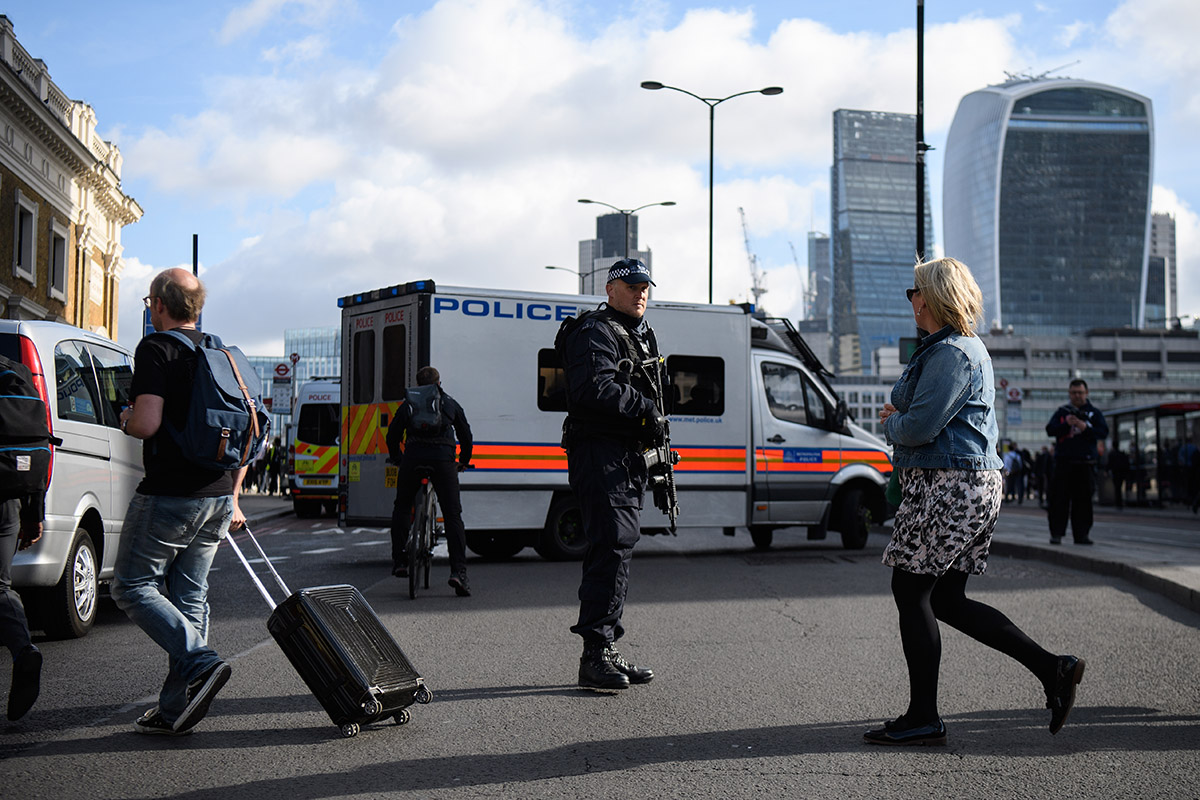Eight minutes.
That’s how long it took London police to confront and kill three terrorists after responding to reports of a white van mowing down people on London Bridge and a stabbing spree in nearby Borough Market.
The toll is terrible: 7 dead and at least 48 wounded.
But make no mistake. Amid the carnage and mayhem of this latest Saturday night massacre, England’s third terrorist attack in less than three months, the British police responded impressively. Their counter-assault was swift, and deadly. The knife-wielding perpetrators, wearing fake suicide vests, were quickly neutralized.
There will be no more pussy-footing around what this was -- no more endless debates about the motive and nature of such attacks. The attackers yelled: "This is for Allah." And they shouted in English. So even at this early stage of the investigation, it’s a safe bet that this was probably a home-grown militant Islamist attack, despite no immediate claim of responsibility.
It was also an unsophisticated strike, a copy-cat of the truck attacks we’ve recently seen not only on Westminster Bride in England, where another militant Islamist killed four, but also in France, Germany and even Sweden.
This attack was unlike the one that killed 22 and wounded dozens of other concert-goers in Manchester, England’s deadliest terror since the Islamist strikes of July, 2005. While much is still unclear about that attack, the home-grown suicide bomber of Libyan origin who detonated an improvised explosive device in front of Manchester Arena at Ariana Grande’s concert had outside help, probably from ISIS or another radical Islamist group. His bomb was packed with nuts and bolts, shrapnel to intensify its lethality. He had recently traveled to Libya, and probably met there with members of ISIS, only weeks before the strike. Others have been arrested in what appears to have been a sophisticated plot.
The perpetrators of Saturday night’s attack in London had no such device. They had knives, not guns. The perpetrators’ use of fake suicide vests suggests that the British had made it difficult for them to acquire explosives for real ones.
Prime Minister Theresa May responded bluntly and quickly, condemning not only this attack five days before an election, but her country’s “tolerance of extremism.” “Enough is enough,” she said, promising to intensify the fight against “Islamist terrorism” by, among other things, tackling violent incitement on the internet and “safe spaces in the real world.” This would require “difficult conversations,” she added.
Several important questions remain. Was this attack part of the conspiracy that produced the attack in Manchester? Probably not. Was it inspired by Manchester. Probably. And were the attackers already “known” to the police, that is, already under police surveillance? If they were, the police may eventually be blamed for not having done enough to prevent such an attack.
But the British police’s response is hard to fault. Better law enforcement training, the high terrorism alert declared after Manchester, and the existence of almost 500,000 surveillance cameras in London alone –roughly one for every 11 residents – have bolstered the police’s ability to respond to such attacks and capture or kill their perpetrators.
Short of prevention, this is key. For as Prime Minister May said, candidly, this type of low-tech, but lethal terrorism is likely to happen again. What counts, once an attack occurs, is first, how quickly the police respond, and second, how quickly the Brits return to "normal." Albeit, the new normal.
From what we now know, the police responded superbly.
What matters now is how the British public will react. The proverbial “stiff upper lip” would be terrorism’s most ardent foe. Ariana Grande’s concert in Manchester is taking place as planned. That, alone, is a failure for terrorists.
Stepped up intelligence and security, steadfastness, and adherence to our own core values must be our objective. For make no mistake. London Bridge will not be the last such attack, in England, or Europe or the U.S.. On September 11th, 2001, there were some 500 Al Qaeda operatives.
Today, U.S. intelligence estimates there are some 40,000 foreign fighters in the self-declared “Caliphate,” including 7,000 from Europe, many of whom are returning, or have already returned. ISIS has 18 affiliates around the world, while Al Qaeda has over a dozen.
Though the groups have different tactics and strategies, all of them are bound together by what one veteran law enforcement and intelligence official called “the common ideology of the global jihad and its core element--- that America is the great apostate.”
For such groups, New York City represents the heart of the apostate. Thus their goal will remain to do in New York and other American cities what they are now doing in Europe. At the moment, Europe, for many reasons, is simply an easier target.
ISIS, Al Qaeda, and like-minded groups must be defeated not only on the killing fields of Syria and Iraq, Yemen and Libya, but ideologically. The ideological battle for hearts and minds will take far longer. As the battles rage, resilience is crucial.
This piece originally appeared on FoxNews.com
______________________
Judith Miller is an adjunct fellow at the Manhattan Institute, a contributing editor of City Journal, and Fox News contributor.
This piece originally appeared in FoxNews.com
